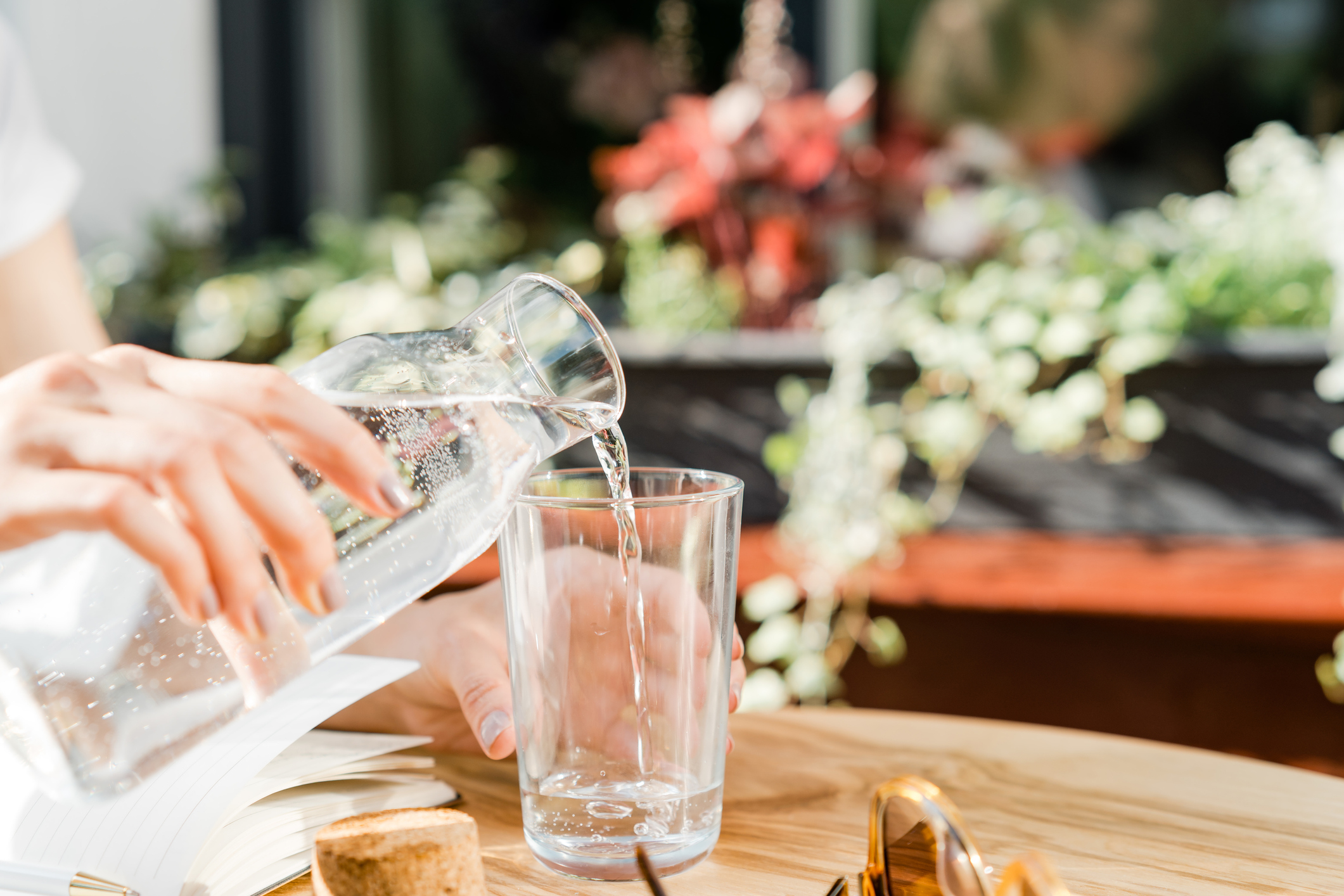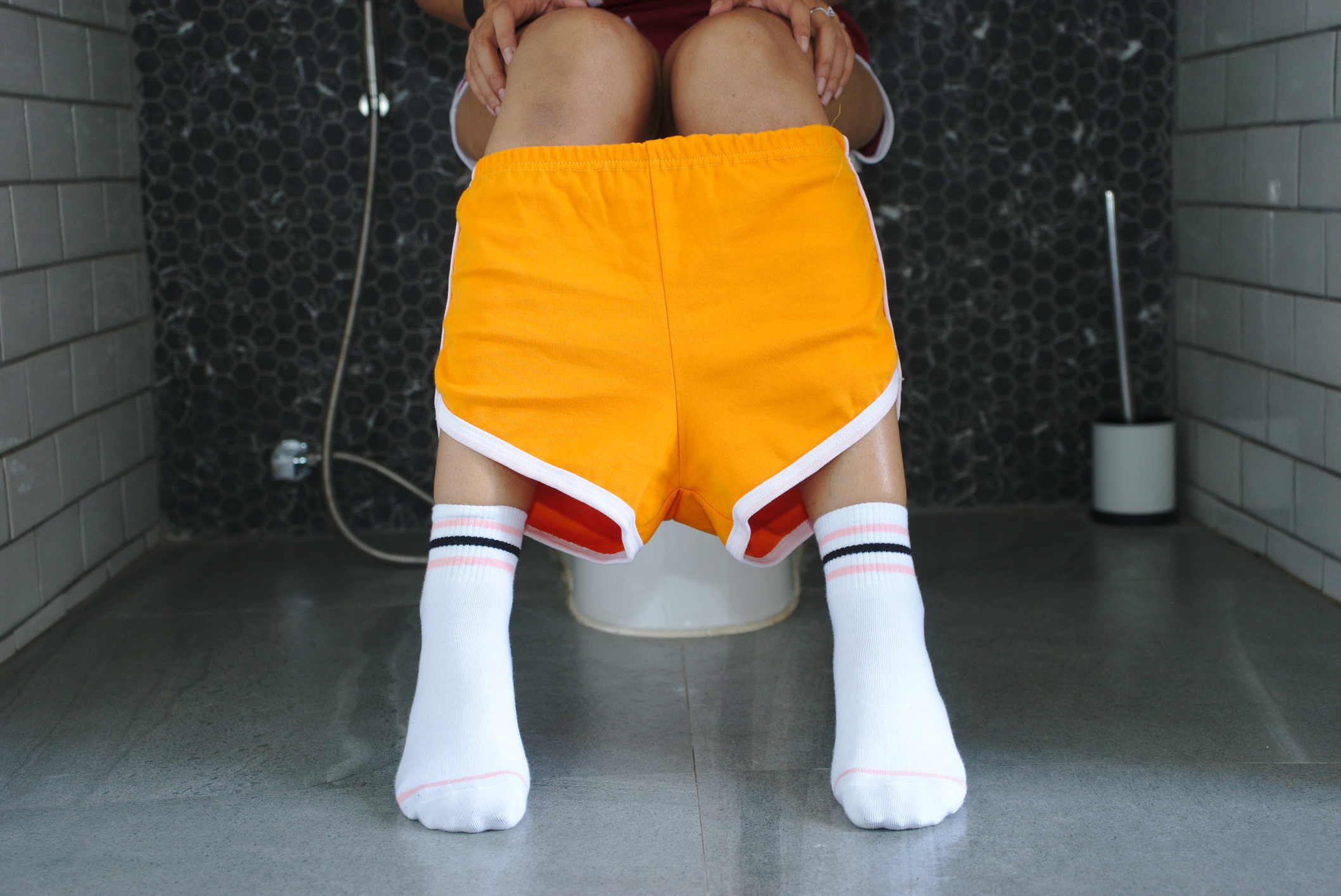
Celebrity news, beauty, fashion advice, and fascinating features, delivered straight to your inbox!
You are now subscribed
Your newsletter sign-up was successful
We've all been there
If you've ever experienced vaginal discharge or any sort of problem down there, don't worry: you're not alone. FYI, it's way more common than you'd think. The worst of the lot are UTI's - you know, the burning, stinging likes of cystitis, vaginitis and more - but do you know how to treat urinary tract infections, or why you keep getting them?
A bit like thrush and bacterial vaginosis, UTI's are infections of the vagina that can cause some discomfort if left untreated.
As complementary medicine practitioner and founder of Just For Tummies Linda Booth puts it, getting a UTI is pretty common. "Having a UTI doesn't mean you’re unclean, and it's definitely nothing to feel guilty about," she stresses.
However, it can become a bit of a pain - literally - if left untreated. Keep reading as Booth answers all of your burning (sorry) questions, plus lends her expert advice on how to treat urinary tract infections, too.
What is a urinary tract infection or UTI?
As above, for those of you lucky enough never to have experienced one, a urinary tract infection or UTI is a bacterial infection in the tract that your urine passes through.
The practitioner explains that UTI’s can come in stages. "In the first instance, the infection is known as cystitis, which affects your urethra, but if it’s left untreated it can then move up your urinary tract into your bladder and into your kidneys, ending in a kidney infection," she shares.
Celebrity news, beauty, fashion advice, and fascinating features, delivered straight to your inbox!
FYI, infections of the bladder, called cystitis, or urethra (the tube which transports wee from your body) are classed as Lower UTIs.

5 common urinary tract infection causes
So you now know what a UTI is. But what causes them? According to the expert, a UTI is caused by bacteria getting past your body’s natural defences. The vast majority are caused by E. Coli, which is usually found in your digestive system.
Loads of things can trigger it - dehydration, sex, not peeing after sex, using perfumed soaps on your vagina or even potentially scented condoms.
Do note, UTI’s are not STI’s and you can get one without ever having sex, but sex can play a part, particularly if you’re having a lot of it. "During sexual intercourse, the e-coli bacteria - which is responsible for around 80% of UTIs - can be pushed into the urethra, where it can travel into the bladder and beyond, causing an infection," the practitioner explains.
It’s important to remember that sometimes, no matter how careful you are, UTI’s just happen. Some of us are more naturally prone to it than others. Remember that it’s not a reflection on you, and it’s nothing to feel ashamed of. Recognising the onset will prevent the infection from taking hold.
Can I get a UTI during pregnancy?
Oh yep. "UTIs can be more common during pregnancy due to the location of the uterus," she explains. "It sits directly on top of the bladder and as the uterus grows, its increased weight can block the drainage of urine from the bladder, causing an infection."
5 common urinary tract infection symptoms
Experiencing any of the following? Signs that the infection is coming can include:
- Needing a wee and the not being able to have one
- Weeing and feeling like your bladder is still full
- A burning sensation whilst weeing
- Pain in your stomach or bladder area
- Blood in your wee.

How to treat urinary tract infections: 8 steps
1. Pee after sex
Frankly this very simple trick should be on every school curriculum.
Try this: after you have sex, go and have a wee. It flushes any bacteria that might have got into your urethra out, massively reducing your chance of getting a UTI. Simple, easy and honestly criminal that all girls aren’t taught it earlier.
"You can also use the bidet or shower," explains Booth. "It’s important to empty your bladder and wash your vagina after sex to prevent e-coli from getting up the urethra and into the bladder – if there’s not much urine, I recommend drinking a full glass of water so you get a good flow, as this will help wash out any harmful bacteria."
2. Be mindful of your positions
Did you know? Many women suffer from chronic UTI infections caused by position during sexual intercourse, according to the expert. "Changing position may alter friction on the urethra. Remember that the distance between the anus and the urethra is only small, which makes it so easy for the e-coli to be pushed into the urethra and vagina," she shares.
Try this: experiment with different positions during sex. "Anal sex increases the risk of spreading the e-coli into the urethra and vagina, while spermicides, un-lubricated condoms and any other chemical based lubricants may also irritate the urethra and vagina," she goes on.
3. Opt for non-perfumed soaps
Remember, gently cleansing your vagina bits is best practice.
"Don’t use perfumed soaps as they’re harsh on the body, and don’t put soap inside your vagina - it’s self cleaning, and you’ll upset it," explains Booth.
4. Try cotton underwear
Simple but oh-so-effective.
"Wearing clean, cotton knickers will reduce the amount of bacteria hanging around," explains the practitioner.

5. Stay hydrated
Drinking your recommended six to eight glasses of water a day will help your skin, hair and nails, and also flush out any lingering nasties from your urethra when you pee.
Plus, be aware that drinking alcohol can make an underlying infection worse because it dehydrates you.
Try this: "Swap between water and booze when you’re drinking - it'll help stave off UTI's but also hangovers, too - and as soon as you feel a twinge, stop drinking any alcohol and down a pint of water," recommends Booth.
6. Avoid cranberry juice
It’s widely thought that drinking cranberry juice can help to prevent or cure a UTI, but this is in fact false, the expert shares.
"A study published on jamanetwork.com found that cranberry consumption has little to no effect on the treatment of UTIs," she explains. "Half of the subjects took tablets equivalent to 20 ounces of cranberry juice per day, and it was found that levels of bacteria in urine and the number of UTIs was not affected."
Step away from the cranberry juice. It likely won't help.
7. Stick to your normal contraception
Ever heard the rumours that using condoms can cause cystitis? Booth reckons there’s no scientific evidence as of yet to indicate that this is true.
"Experts are split on whether condom usage has an affect on UTI’s, either making them more or less likely, but with so little conclusive proof to go on, there’s no need to alter your contraceptive choices," she explains.
8. Go to the doctor’s
Last but by no means least, if you recognise the symptoms kicking in and your normal go-to remedies like drinking water and changing your underwear don't help, know you can get over-the-counter cystitis sachets that will help.
If you've never tried them before, chatting to the pharmacist will help, or alternatively, do book a GP appointment.

Ally is Marie Claire UK's Senior Health and Sustainability Editor, a well-regarded wellness expert, ten-time marathoner, and Boston Qualifying runner.
Utilising her impressive skillset and exceptional quality of writing, she pens investigative, review and first-person pieces that consistently demonstrate flair and originality.
As well as writing, Ally manages a team of freelancers, oversees all commissioning and strategy for her pillars, and spearheads the brand's annual Women in Sport covers, interviewing and shooting the likes of Mary Earps, Millie Bright, and Ilona Maher. Shortlisted for three BSMEs and winning one in 2022, Ally lives and breathes her verticals: her eye for a story and connections within the wellness sphere are unrivalled. Follow Ally on Instagram for more.
